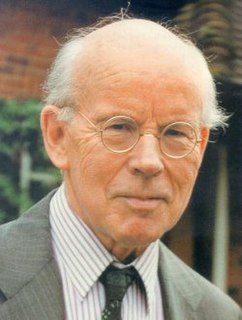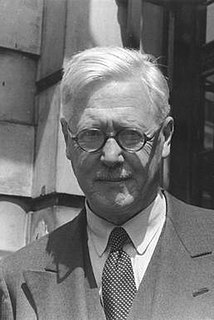Related Research Articles

Sir William Osler, 1st Baronet, was a Canadian physician and one of the four founding professors of Johns Hopkins Hospital. Osler created the first residency program for specialty training of physicians, and he was the first to bring medical students out of the lecture hall for bedside clinical training. He has frequently been described as the Father of Modern Medicine and one of the "greatest diagnosticians ever to wield a stethoscope". Osler was a person of many interests, who in addition to being a physician, was a bibliophile, historian, author, and renowned practical joker. Outside of medicine, he was passionate about medical libraries and medical history and among his achievements were the founding of the History of Medicine Society, at the Royal Society of Medicine, London. In the field of librarianship he was instrumental in founding the Medical Library Association of Great Britain and Ireland, the Association of Medical Librarians with three others, including Margaret Charlton, the medical librarian of his alma mater, McGill University. He left his large history of medicine library to McGill, where it continues to exist as the Osler Library.

The Royal College of Physicians (RCP) is a British professional membership body dedicated to improving the practice of medicine, chiefly through the accreditation of physicians by examination. Founded by royal charter from King Henry VIII in 1518, the RCP is the oldest medical college in England. It set the first international standard in the classification of diseases, and its library contains medical texts of great historical interest. The college is sometimes referred to as the Royal College of Physicians of London to differentiate it from other similarly named bodies.

Elvis Jacob Stahr Jr. was an American government official and college president and administrator. After graduating from the University of Kentucky in 1936 as a member of Sigma Chi and Pershing Rifles, he attended Merton College at the University of Oxford on a Rhodes Scholarship. He served as lieutenant colonel in the U.S. Army during World War II. He returned to the University of Kentucky and became a professor and then dean of the College of Law, before becoming president of West Virginia University. He served as the United States Secretary of the Army between 1961 and 1962 and served as president of Indiana University from 1962 to 1968. He was the president of the National Audubon Society from 1968 until 1981.
Prof Arthur Geoffrey Walker FRS FRSE was a British mathematician who made important contributions to physics and physical cosmology. Although he was an accomplished geometer, he is best remembered today for two important contributions to general relativity.
Sir Frederick Maurice Powicke (1879–1963) was an English medieval historian. He was a Fellow of Merton College, Oxford, a professor at Belfast and Manchester, and from 1928 until his retirement Regius Professor at Oxford. He was made a Knight Bachelor in 1946.

William Augustus Guy was a British physician and medical statistician.
Sir Rex Edward Richards was a British scientist and academic. He served as Vice-Chancellor of the University of Oxford and as a director of the Leverhulme Trust.
Sir James Clarke Holt, also known as J. C. Holt and Jim Holt, was an English medieval historian, known particularly for his work on Magna Carta. He was the third Master of Fitzwilliam College, Cambridge, serving between 1981 and 1988.

The Monro of Fyrish family were a Scottish family and branch of the ancient highland Clan Munro. The family produced a notable dynasty of doctors to London in the 18th and 19th century where they were involved in early work on curing 'insanity'. Four generations occupied successively the position of (Principal) Physician of the notorious Bethlem Hospital (Bedlam). They were also leading members of a variety of important medical associations. Other members were painters, priests and philanthropists of note and one was an important early patron to J. M. W. Turner.

Henry Cohen, 1st Baron Cohen of Birkenhead was a British physician, doctor and lecturer. He was famous for his Harveian Oration at the Royal College of Physicians in 1970, on the motion of blood in the veins. Cohen was elected to the chair of medicine at the University of Liverpool in 1934. When the Central Health Services Council was formed in 1949, he became its vice-chairman, and chairman in 1957. Knighted in 1949, he was President of the British Medical Association from 1951. After a coronary thrombosis in the following year, Cohen decided to devote his life to the greater work of teaching. He was raised to the peerage as Baron Cohen of Birkenhead, of Birkenhead in the County Palatine of Chester, on 16 June 1956 and was elected President of the General Medical Council in 1961. In 1964, he became President of the Royal Society of Medicine, receiving the society's gold medal in 1971. He also opened the assembly hall of the King David School, Liverpool.

Sir John Peter Mills Tizard was a British paediatrician and professor at the University of Oxford. Tizard was principally notable for important research into neonatology and paediatric neurology and being a founder member of the Neonatal Society in 1959. Tizard was considered the most distinguished academic children's physician of his generation.

Sir Henry Halford, 1st Baronet, GCH, born Henry Vaughan, was president of the Royal College of Physicians for 24 years. As the royal and society physician, he was physician extraordinary to King George III from 1793 to 1820, then as physician in ordinary to his three successors – George IV, William IV and the young Victoria. He also served other members of the Royal Family until his death.
Alexander Macdougall Cooke was a British doctor and academic at the University of Oxford.

Sir Edward Charles Dodds, 1st Baronet was a British biochemist.
William Henry Walsh was a 20th-century British philosopher and classicist. He was an expert on Immanuel Kant.

Charles Frederick William Illingworth was a British surgeon who specialised in gastroenterology. Along with a range of teaching and research interests, he wrote several surgical textbooks, and played a leading role in university and medical administration.

Lieutenant-General Sir William Porter MacArthur was an Irish British Army officer and doctor. He served as Commandant of the Royal Army Medical College from 1935 to 1938, and Director General Army Medical Services from 1938 to 1941. His specialism as a doctor was tropical medicine and he served as President of the Royal Society of Tropical Medicine and Hygiene from 1959 to 1961.
Natesan Rangabashyam (1936–2013), popularly known NR, was an Indian surgical gastroenterologist and medical academic, known for his pioneering efforts in the fields of surgical gastroenterology and proctology in India. He was known to have established the department of Surgical Gastroenterology at Madras Medical College and introduced the first MCh course in Surgical Gastroenterology in India. A former honorary surgeon to the President of India, he received B. C. Roy Award, the highest Indian award in the medical category, twice. The Government of India awarded him the third highest civilian honour of the Padma Bhushan, in 2002, for his contributions to medical science.

Joseph Godwin Greenfield, was an early neuropathologist. He created, with 28 founding members, the neuropathological club, which would eventually become the British Neuropathological Society. Greenfield served as pathologist at the National Hospital for Neurology and Neurosurgery at Queen Square.
Alexander George Gibson was a British physician, pathologist, and cardiologist.
References
- ↑ Robb-Smith, AHT. "William Henry McMenemey". munksroll.rcplondon.ac.uk. Royal College of Physicians. Retrieved 20 June 2018.
- 1 2 3 Levens, R.G.C., ed. (1964). Merton College Register 1900–1964. Oxford: Basil Blackwell. p. 161.
- ↑ "BNS Archives". British Neuropathological Society. Retrieved 16 December 2020.